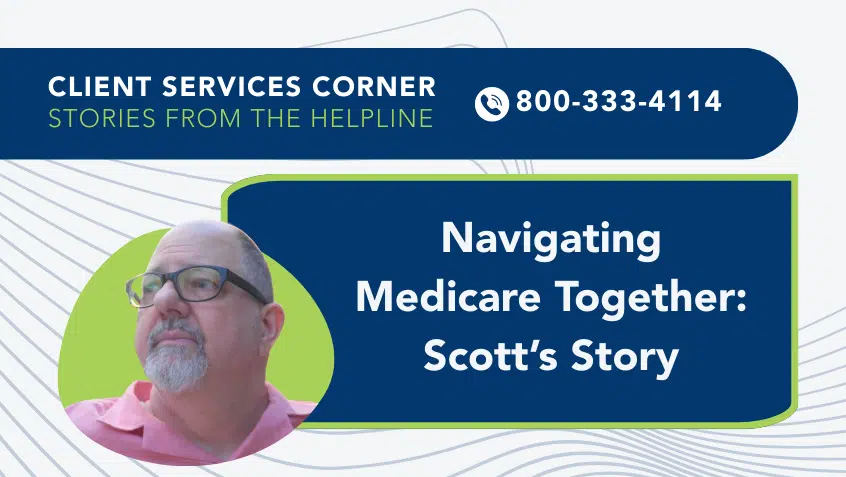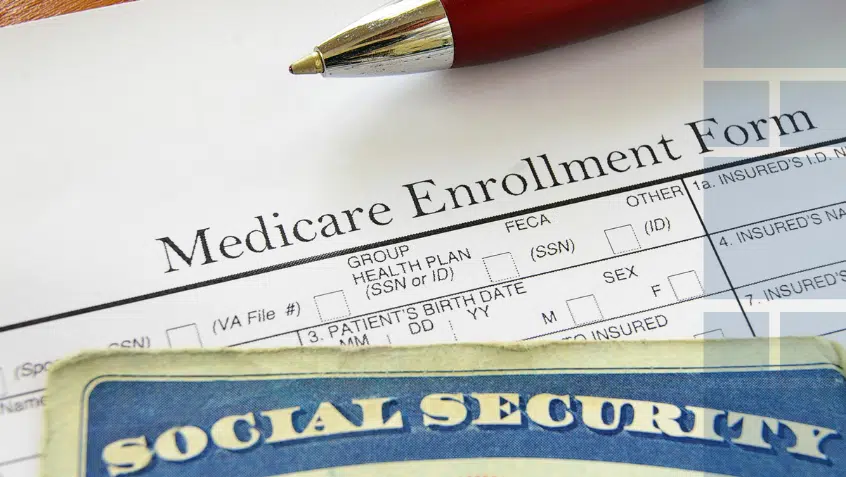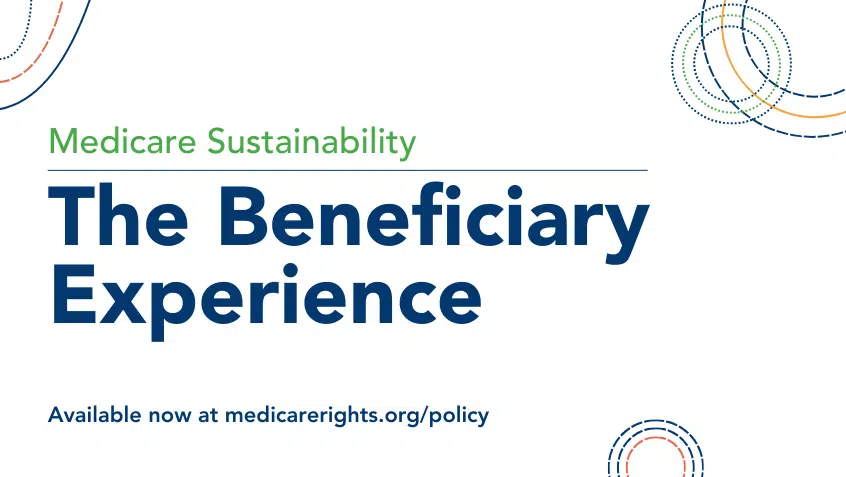Join Us Live for a Discussion on Medicare, Democracy, and the Future of Health Care
BENES Act Will Bring Relief to People Nearing Medicare Eligibility
BENES Act Will Bring Relief to People Nearing Medicare Eligibility by Modernizing a Fragmented and Archaic Part B Enrollment System, says the Medicare Rights Center
Washington, DC — The Medicare Rights Center applauds the introduction of the bipartisan “Beneficiary Enrollment Notification and Eligibility Simplification (BENES) Act,” championed in the House of Representatives by Congressmen Raul Ruiz (D-CA) and Patrick Meehan (R-PA) and in the Senate by Senators Bob Casey (D-PA) and Chuck Schumer (D-NY).
The BENES Act (S. 3236; H.R. 5772) fills in long-standing education gaps for people nearing Medicare eligibility, by ensuring they receive a clear and detailed notice explaining Part B enrollment rules to help them make an informed decision about whether and when to enroll—along with other measures.
The consequences of Part B-enrollment missteps can be significant, often leading to a lifetime of higher Part B premiums. Additionally, older adults and people with disabilities who make mistakes face significant out-of-pocket health care costs, gaps in coverage, and barriers to accessing needed services.
“The Medicare Rights Center welcomes the BENES Act’s long-overdue reforms to the Medicare Part B enrollment system,” said Joe Baker, president of the Medicare Rights Center, a national nonprofit consumer service organization that works to ensure access to affordable health care for older adults and people with disabilities.
“People with Medicare and their families call our helpline every day because they need help with the overly complicated task of deciding of whether to sign up for Part B, or they are desperately seeking relief from lifetime penalties or unmet health care needs resulting from honest enrollment mistakes. The BENES Act makes it possible for the 10,000 people who turn 65 every day to avoid these burdensome Part B enrollment problems,” said Baker.
The BENES Act also aligns and simplifies Part B enrollment periods by bringing them in line with those of private insurance products, including Medicare Advantage and Part D prescription drug plans. It guarantees that people with Medicare will no longer go without needed care due to outdated enrollment and coverage start dates that lead to senseless gaps in Part B coverage.
Additionally, the BENES Act reforms the “equitable relief” process, the only remedy for people who make enrollment mistakes, by making it more accessible. It standardizes the process and makes it more transparent, while also expanding options for individuals who erred in delaying or declining Part B because they were given misinformation by a trusted source.
In 2014, 750,000 people with Medicare were paying a Part B Late Enrollment Penalty (LEP), with the average LEP amounting to nearly a 30 percent increase in their monthly premium.
“Far too many people with Medicare are saddled with a lifetime of higher health care costs and go without needed services due to fragmented and archaic Part B enrollment processes” said Baker, who thanked Congressmen Ruiz and Meehan as well as Senators Casey and Schumer for advancing the long-overdue reforms included in the BENES Act to promote the well-being of people with Medicare.
Read Joe Baker’s letter to Congressmen Ruiz and Meehan
Read Joe Baker’s letter to Senators Casey and Schumer
Contact: Mitchell Clark – mclark@medicarerights.org – 212-204-6286
–end–
About Medicare Rights
Learn More
Media Inquiries
pressoffice@medicarerights.org





